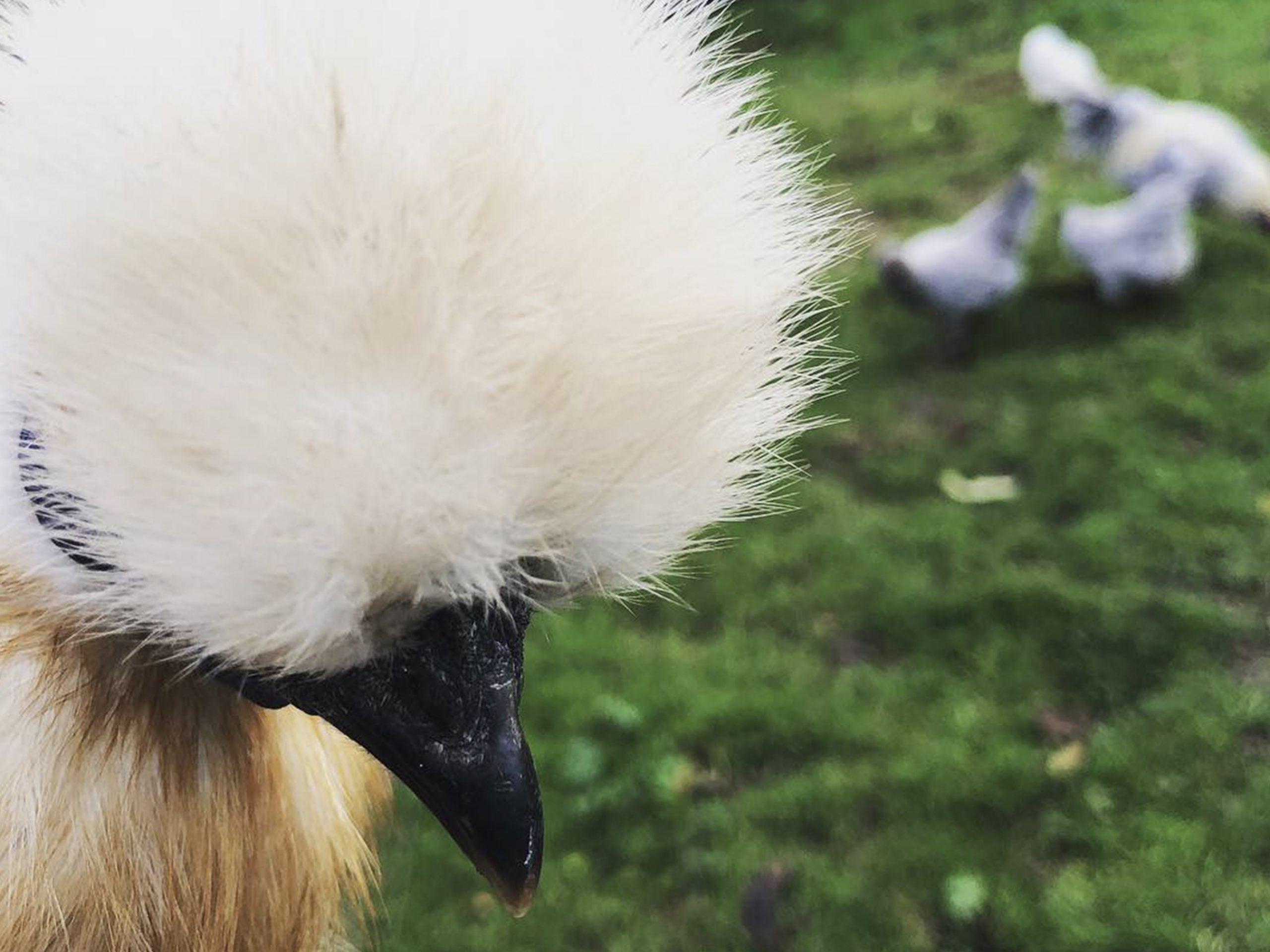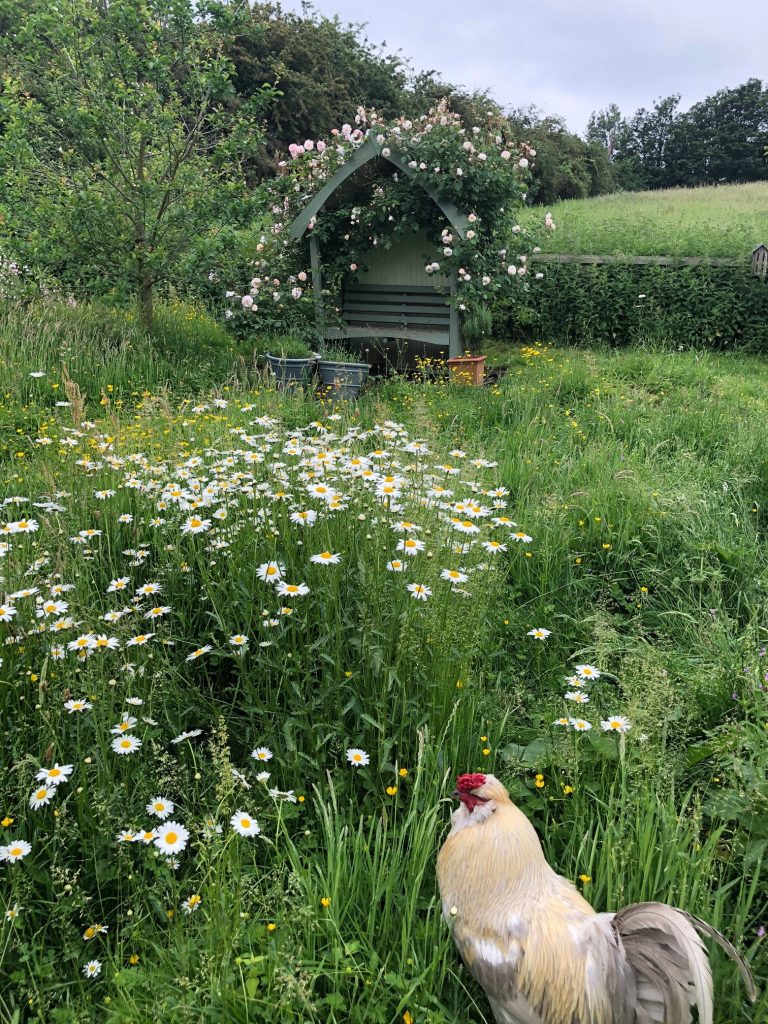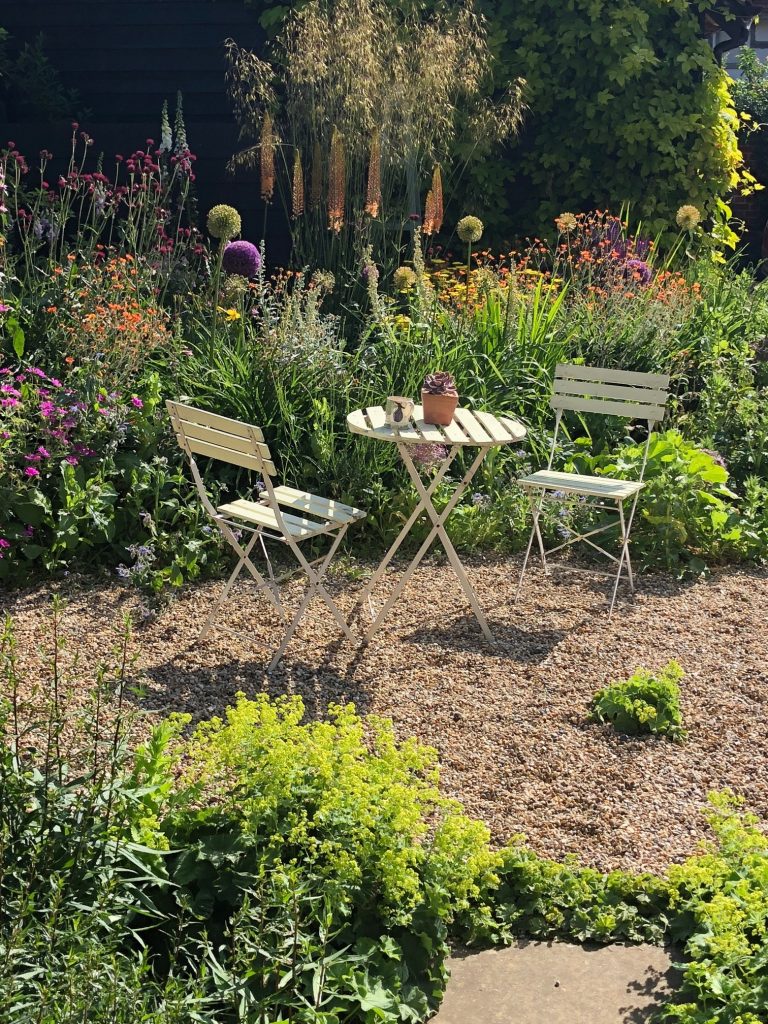A sanctuary for free-roaming hens

After 14 years of keeping hens, Bridget Allen, Garden Owner of Lillesley Barn in Suffolk, shares how she now cannot be without these garden companions.

“My first foray into keeping hens was 14 years ago with five rescue red farm hens. They arrived with missing feathers and very pale combs. We had bought a wooden ‘chicken ark’ in preparation for their arrival and nervously man-handled the flapping nervous hens from a cardboard box into their new home.
Over the coming weeks, the hens flourished in our small orchard, regaining their feathers and red combs and they started to lay fairly regularly. Their personalities developed and we were won over! The egg quality improved, both in colour and flavour, as they grazed on the lush grass and they became increasingly friendly. They proved welcome companions when I was digging in the garden and would be forever excitedly clucking when they spotted grubs or worms.
Since then I have rarely been without hens. We have had rescue hens, pure breeds and even hatched some of our own eggs in a small incubator or under a broody hen. We currently have 11 hens: a mixture of Lavender Araucanas and Silkies. We also have two cockerels: an Araucana (Pigeon) and a Golden Silkie (Pumpkin). The Araucanas produce a large blue/green egg and silkies a small pale egg.
As the flock outgrew the ark, we upgraded to a much bigger chicken coop and chose a pretty painted style with a heart window and a ladder. Most importantly, it had an automatic closing door. This was a revelation! The door works on a timer for opening in the morning and it closes by light sensor at dusk. All those evenings in winter when it was dark early and I was doing the school run, I knew that the hens would be safely locked up from any predatory animals.
Over the years, we have suffered losses. Our rescue hens do not tend to live as long as others as they have had a hard life. However, we give them a lovely retirement and they are rewarding. We have a range of unwelcome predators: foxes, badgers and stoats. We have an enclosed run where they can be kept if we are worried but generally, we take the risk as we feel their happiness and freedom are the most important. The orchard is fenced so that the hens are kept away from scratching in our planted flower beds. The two cockerels are very protective of their flock, and we also have two dogs who we believe also deter the foxes.
We feed the hens a mixture of layers pellets, mixed corn, plenty of grazing and of course, any vegetarian scraps. They are a joy to keep and I wouldn’t be without them now.”
Discover more inspiring stories and case studies in our Little Yellow Book of Gardens and Health




















